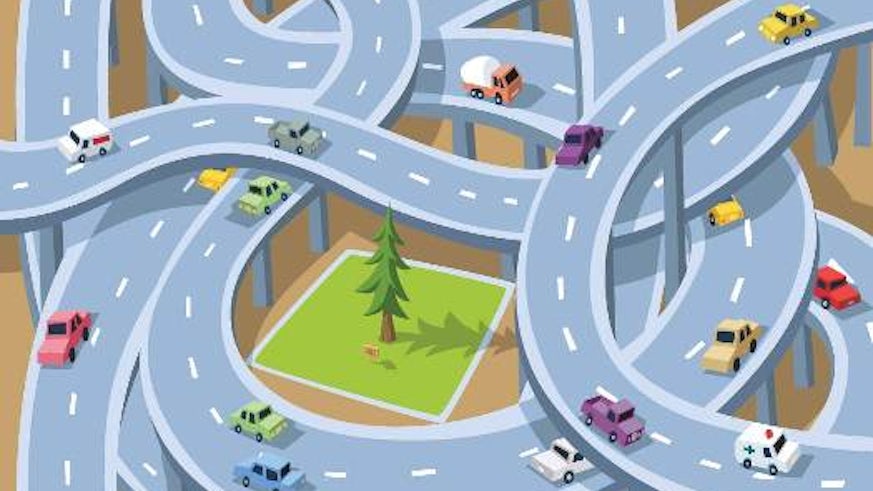More roads, more misery – how commuting is killing us
12 December 2014

Commuting is always a hot topic. This week, Dr Daniel Newman was invited onto a BBC regional radio station to talk about why we find commuting so stressful: a caller had gone on a rant to producers about local roadworks that were making his daily drive hellish.
The irate caller was typical – 91% of UK workers commute and most find it an ordeal. We Brits do love a moan, so what better to complain about?
In this light, the chancellor's Autumn statement announcement of £15 billion for road schemes up and down England promises an invitation for even greater commuter disgruntlement. While George Osborne says his investment will ease congestion and link up major urban areas, the very act of commuting is actually bad for us.
By encouraging more commuting, and especially by further deepening the hold of the car system with the presumption for private ownership, we will just see more of the same: a legion of stressed out commuters miserably trudging to work and home again throughout the week.
We are commuting further than ever before, an average of more than nine miles, a trend that reflects the pressure to find and hold down a job in times of austerity.
This has predictably negative consequences. Recent research into commuting has shown it makes us unhappy and anxious while lowering our sense of self-worth and fundamentally reducing levels of life satisfaction. The commuting that more than 80% of workers tolerate at an average of an hour a day adversely affects both our physical and mental health.
Not what the doctor ordered
Commuting increases incidences of back, joint and neck pain, with two-thirds of drivers blaming their daily travel for such ailments.
As well as suffering from higher levels of insomnia, commuters are less likely to take regular exercise and more likely to forego wholesome home-cooked food in favour of ready meals and take-away.
A study in California found commuting to be the most significant lifestyle factor behind obesity – the amount of miles travelled directly correlating to weight gain. When we are out of shape, our self-image suffers and there is a strong relationship between obesity and poor mental health.
Travelling alone
Commuting also tends to make us more isolated. Every 10 minutes of commuting is said to reduce social capital – the networks of friends and acquaintances we can develop – by 10%. We have fewer people to turn to unburden ourselves.
This is the loneliness of the crowds. While commuting inevitably means being surrounded by others, they are typically strangers at best – or, more likely, rivals to compete with and be antagonised by.
Indeed research suggests a rise in commuting by car has increased social atomisation and supplanted the idea of community with a heightened level of detached individualism.
Commuting is not only implicated in a decline of civic spirit but can even be attributed as a major cause of marriage break-up with those travelling more than three quarters of an hour to get to work 40% more likely to divorce their partner. The lack of control in commuting is another stress factor, as traffic jams and unpredictable weather mean we are constantly on edge.
Some of the worst effects can be found in women. While women tend to work shorter hours and commute less, they are unfavourably impacted by the health issues surrounding commuting. It has been suggested that this trend may result from the generally weaker occupational position women experience but it seems more likely to result from their having to take on greater responsibility for day-to-day household tasks such as childcare and housework.
In particular, this can be found in a practice labelled "trip chaining" as women tend to make more interim stops along the route of their commute, picking up children from schools or purchasing goods at the shops meaning that they have less flexibility and are under more pressure to squeeze in extra activities.
The future of commuting
A recent study found walking or cycling to work improves mental well-being, as well as the obvious physical benefits. Those who get to work under their own steam are able concentrate better and felt under less strain than when travelling by car.
Even opting for public transport made commuters feel better than driving so the message seems to be to get out of the car if you want to feel better.
Of course, the happiest people are actually those who work at home so, with advances in telecommuting and flexi-time, not going into the office at all would be the ideal. But for those who must commute, the government's pre-election inducement to make this easier to do by car might seem like good news but, really, will only tie drivers into a practice that is slowly killing them.
This article was originally published on The Conversation